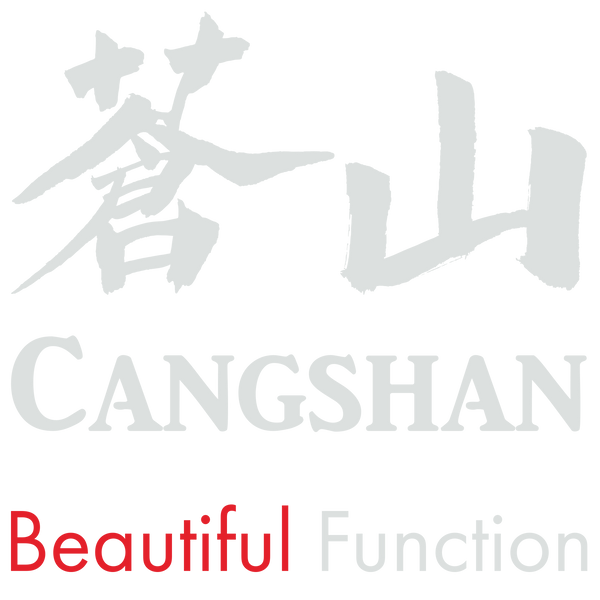A great knife comes from excellent materials.
THE DIFFERENCES BETWEEN STEELS EXPLAINED
A great knife comes from excellent materials. There is a wide variety of different steels that offer various levels of performance for knives of every caliber. Traditionally the steels utilised in cutlery focus on a balance between the softness and hardness of the steel. The hardness of steel is measured with the Rockwell Hardness Scale with 56-58 being on the softer side and anything over 60 being exceedingly hard.
Softer steels are easier to maintain and are usually comprised of softer metals that offer greater stain resistance. Although it may seem counterintuitive these softer steels are more durable because they are more forgiving when the blade or knife edge encounter a hard surface. This means if the knife hits a chicken bone or is dropped it is less likely to chip or break.
Hard steels are either high alloy mixes or alloys with higher carbon content. This hardness allows knives to be sharpened to a more precise and acute angle which is especially important for sushi knives. With hardness usually comes brittleness and if there is a high amount of carbon in the steel the blade will have a greater potential to stain or corrode from contact with liquid. So the trade off is a harder, sharper blade that needs more care and maintenance than a knife with a softer, stain resistant steel.
There are also new, precisely crafted high alloy steels and powdered steels that offer incredible hardness and durability while still being incredibly stain resistant. The meticulous manufacturing process of these alloys makes a finer internal microstructure within the steel which greatly increases durability without sacrificing hardness.
Here is a link to a video of Henry Liu, Owner and Chief Designer of Cangshan Cutlery, explaining the different performance levels of various steels:
DEEP CUTS WITH HENRY
Cangshan Cutlery Company Website
THE IMPORTANCE OF HEAT TREATMENT
Heat treatment is one of the keys to a great knife. The heat treatment process is a complex set of stages where the steel is heated and cooled to precise temperatures to bring out the best qualities of steel while also removing any impurities that may adversely affect the alloy. Even slight variations of a few degrees at any point in the process can cause the knife’s hardness to vary throughout the blade so the more precise the process is attuned to the steel being heat treated the better the ultimate performance of the knife.
GERMAN X50CrMov15 STEEL
German X50CrMov15 Steel is a common alloy found in many kitchen knives available in the market today and was made popular by top German cutlery manufacturers like Wusthof and Henckels. This steel has an exceptional balance of hardness and durability allowing for a sharp edge, great edge retention without any brittleness. The steel has a hardness of 58 ±2 on the Rockwell Hardness Rating and contains chromium and molybdenum making it highly stain resistant.
SWEDISH SANDVIK® 14C28N STEEL
Swedish SANDVIK® Steels in our opinion are the perfect mix of incredible hardness and durability. These steels take a phenomenally sharp edge and keep it up to 5 times longer than competing knives currently in the marketplace. That means a knife that stays sharper, longer. These steels have a hardness rating of 60 ±2 on the Rockwell Hardness Rating.
Swedish SANDVIK® 14C28N Steel is an exceptional high-alloy, fine grained steel is utilised in all of Cangshan’s premier knife lines. The fine grain of the material means a more stable internal structure which is why the steel is able to improve so much during heat treatment becoming hard enough to take a keen 16 degree angle without any of the brittleness common to other hard steels. This makes an incredibly sharp knife that will not chip and stays sharp longer between sharpening. Cangshan has strategically partnered with Swedish company Sandvik, a 155 year old, 9 billion dollar company that specialises in metal cutting tooling, mining and construction solutions and advance stainless steels and special alloys. With 43,000 employees, 8000 active patents and a continuous investment into R&D they have become industry leaders, dedicated to creating excellent value and effective solutions for their clients. Working with successful, premier brands has earned Sandvik a strong reputation for innovation, smart solutions and a commitment to quality.
JAPANESE VG10 STEEL
Japanese VG10 steel is a stain resistant steel with a high carbon content which makes it incredibly hard and is popular for sushi knives. The steel contains vanadium which helps to refine the internal grain size of the metal and molybdenum so it can reach its maximum hardness. This steel has a hardness rating of 60 ±2 on the Rockwell Hardness Rating, but it is a brittle steel so it needs more care and maintenance.
